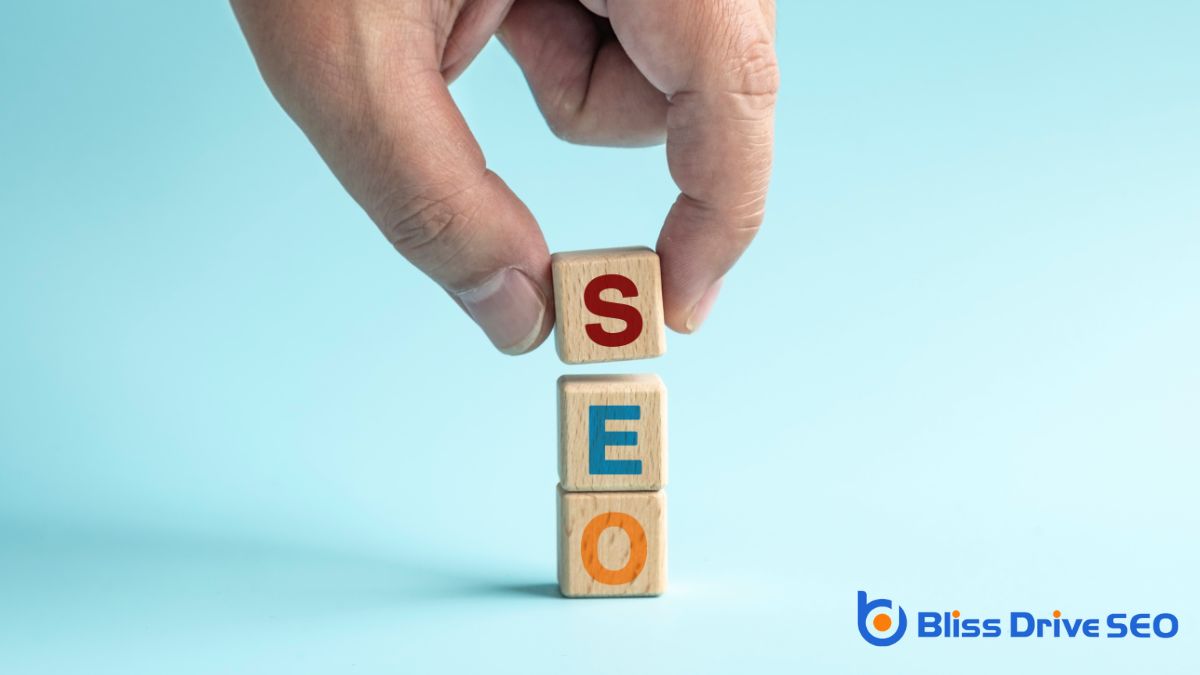Digital Marketing Services
Learn More About Us

You might think SEO is the go-to solution for all online visibility issues, but it's not always the best fit. When you're dealing with nicheA specific segment of the market targeted by affiliates to promote products or services. audiences that don't generate much search volume, or if you're aiming for quick, short-term marketing goals, SEO's long game might not cut it. What if immediate traffic is non-negotiable, or you're handling highly competitive keywordsWords or phrases that users type into search engines to find information.? These scenarios might call for alternative strategies. How do you decide when to set SEO aside and pivot to something more effective? Let's explore the factors that could guide you away from traditional SEO tactics.

When targeting a niche audience, it's often essential to rethink your approach to SEO. In niche markets, traditional SEO tactics mightn't yield the desired results. You face the challenge of limited search volume, which means fewer people are searching for specific keywords related to your niche. This can make it difficult to rank high on search engines.
Instead, consider focusing on building a strong community around your niche. Engage directly with your audience through platforms where they gather, like industry-specific forums or social media groups.
You should also prioritize creating highly relevant content that speaks directly to your audience's unique interests and needs. Tailor your messaging to resonate with their specific pain points and preferences. This approach builds trust and fosters loyalty, which can be more valuable than merely attracting random traffic through generic SEO strategies.
Additionally, think about leveraging partnerships with influencersIndividuals with the power to affect the purchasing decisions of others due to their authority, know... or thought leaders within your niche. They can help amplify your message and reach the right people more effectively than SEO alone. By focusing on community engagementThe interactions that users have with a brand’s content on social media. and targeted content, you can connect with your niche audience in a more meaningful way without relying solely on traditional SEO efforts.
If you're aiming for immediate results with your marketing efforts, relying solely on SEO mightn't be your best bet. SEO strategies typically take time to yield noticeable outcomes, which can be a problem when you need to make rapid campaign adjustments. Instead, consider leveraging other marketing tactics like paid advertising or social media campaigns to achieve your short-term goals.
Sometimes, businesses require marketing strategies that deliver immediate results, especially when short-term goals are the priority. If you need quick outcomes, relying on SEO mightn't be the best choice. SEO is a long-term investment that builds momentum over time, taking weeks or months to see significant results. When you've got a pressing deadline or an upcoming event, waiting around for SEO to kick in just isn't practical.
Instead, consider alternatives like pay-per-click (PPC)An online advertising model where advertisers pay a fee each time their ad is clicked. advertising or social media campaigns, which can drive traffic and conversions much faster. These methods allow you to target specific audiences instantly, helping you meet those urgent goals without delay.
SEO involves optimizing your website and content for search engines, a process that requires patience and consistency.
You might also be facing a sudden market opportunity or trying to capitalize on a trending topic. In such cases, the ability to act swiftly is vital, and SEO's slower nature may hold you back. It's important to choose the right tool for the job. When immediate results are needed, other marketing strategies might provide the speed and flexibility you require.
Adapting quickly to market changes is essential for short-term marketing goals, and SEO mightn't be your best bet for rapid campaign adjustments. SEO is a long-term strategy that takes time to show results. If you're trying to shift gears quickly in response to market trends or competitor moves, waiting for SEO to kick in can be frustrating. The algorithms need time to recognize your changes, and even then, there's no guarantee of immediate impact.
Instead, consider alternatives that offerThe specific product or service being promoted by affiliates. quicker turnarounds. Pay-per-click (PPC) advertising, social media campaigns, or email marketing can be adjusted on the fly, allowing you to respond promptly to changing circumstances. These methods provide the flexibility to test different messages, offers, or strategies without waiting weeks or months to see results.
When you need to pivot rapidly, relying solely on SEO can leave you lagging behind competitors who are using more agile marketing tactics. It's not about dismissing SEO entirely but knowing when it's not the best tool for the job.
In fast-paced situations, opt for strategies that allow you to react and adapt swiftly, ensuring your campaign stays relevant and effective.
When your goal is to generate immediate traffic, SEO mightn't be the best approach. SEO is a long-term strategy that focuses on building your site's authority and relevance over time. It requires patience and consistent effort to see significant results. If you need to quickly attract visitors for a time-sensitive event or a sudden marketing campaign, relying solely on SEO won't meet your needs.
Consider using other strategies like pay-per-click (PPC) advertising, social media promotions, or email marketing. These methods can provide quick visibility and drive traffic faster than SEO.
PPC campaigns, for example, allow you to target specific audiences and keywords, ensuring your content reaches the right people instantly.
Social media platforms can help spread the word quickly, leveraging viral potential and real-time engagement.
Budget restrictions can significantly impact your decision to invest in SEO. You might have an exceptional product or service, but if your budget is tight, SEO mightn't be the optimal initial investment. SEO demands a long-term commitment and continuous optimization, which can strain finances when funds are limited. If you're unable to allocate resources for ongoing efforts, your SEO strategy mightn't yield the desired outcomes, leaving you frustrated.
Instead, consider alternative marketing strategies that fit within your budget and offer quicker returns. Social media marketingThe use of social media platforms to promote products or services, engage with audiences, and build ..., email campaigns, or local partnerships can be more cost-efficient and still help you reach your audience effectively. These methods allow you to test marketing efforts without depleting your financial resources.
When funds are scarce, it's essential to prioritize spending where you'll see the most immediate impact. Analyze your current financial situation and determine where your money will make the most difference.
If you eventually decide to pursue SEO, make sure you've saved enough to support a sustained effort. Remember, it's better to wait until you're financially prepared to commit to SEO rather than starting and having to halt due to budget constraints.
Exploring the world of SEO becomes more challenging when dealing with fiercely competitive keywords. These keywords are often targeted by numerous businesses, making it tough for your content to rank high in search results. Entering this crowded space means you're competing against well-established websites with considerable resources, which can be overwhelming for smaller businesses or newcomers.
When you're up against such stiff competition, you might find that investing substantial time, effort, and money doesn't guarantee success. Instead of pouring resources into competing for these popular terms, consider focusing on long-tail keywords. These are more specific phrases with lower competition, offering a better chance to reach your target audience effectively.
Moreover, highly competitive keywords often have fluctuating trends and rankingsThe position at which a website appears in the SERP.. This instability might leadA potential customer referred by an affiliate who has shown interest in the product or service but h... to unpredictable outcomes, making it harder to develop a consistent strategy. By targeting less competitive terms, you can create content that connects well with your audience, allowing room for steady growth.
In the world of SEO, understanding when not to chase after fiercely competitive keywords can save you frustration and resources. Focus your efforts on achievable goals, and you'll likely see better results.
When your content requires frequent updates, relying solely on SEO mightn't be the best strategy. Dynamic contentEmail content that changes based on the recipient's preferences or behavior., like real-time news or event coverage, demands immediate attention rather than waiting for search engine indexingThe process of adding web pages into a search engine's database.. Instead, focus on prioritizing user engagementThe level of interaction and involvement users have with social media content. by delivering timely and relevant information directly to your audience.
In the fast-paced digital world, dynamic content presents unique challenges for SEO, particularly when updates are frequent. When your website's content changes often, search engines struggle to keep up. They're designed to crawl and index pages periodically, not continuously. If your content updates several times a day, search engines mightn't capture the latest information, leading to outdated search results. This can be frustrating, especially if you're trying to convey the most current data to your audience.
Frequent updates can also dilute your keyword strategy. When you modify content regularly, maintaining consistent keyword usage becomes tricky. Search algorithms rely on these keywords to understand your content and rank it appropriately. Inconsistent use can confuse search engines, potentially affecting your rankings negatively. Plus, the resources needed to optimize content constantly can be overwhelming.
Another challenge is maintaining a cohesive user experience. If visitors encounter different content every time they visit, it might disrupt their engagement. They could become confused or frustrated if they can't find what they previously saw.
You need to balance keeping your content fresh while ensuring it's reliable and recognizable. Sometimes, relying solely on SEO isn't the best approach for dynamic content.
Real-time information needs pose another layer of complexity for SEO, especially when your content requires frequent updates. When your website deals with breaking news, live sports scores, or real-time stock market updates, relying solely on SEO strategies mightn't be your best approach. Search engines can be slow to index and rank new content, which means your audience mightn't find the latest updates when they need them most. In scenarios where staying current and accurate is essential, SEO may not keep pace with your requirements.
Consider these points when dealing with real-time content:
In essence, when your priority is delivering the freshest information instantly, relying solely on SEO can hinder rather than help. Embrace tools and strategies that complement your real-time content needs.
For websites that depend on frequent content updates, prioritizing user engagement over traditional SEO tactics is crucial. When your site revolves around providing new, timely content—such as news portals, event coverage, or trend-based platforms—your main focus should be on creating a compelling experience for your audience. While SEO can aid in visibility, it shouldn't overshadow the importance of keeping users engaged and coming back for more.
Engagement entails ensuring your content resonates with the audience. You aim to initiate conversations, gather feedback, and promote shares. This can be accomplished by building a community through comments, likes, or direct interactions.
When users feel listened to and involved, they're more likely to revisit, which naturally enhances your site's reputation.
Over-reliance on SEO may cause you to overlook authentic connections. Instead of concentrating solely on keywords, consider what your audience finds valuable. Providing consistent, high-quality content tailored to your audience's interests will naturally improve your site's standing.
There's a time when focusing on visual contentImages, videos, and other visual elements used to engage users and improve conversion rates. can be more impactful than traditional SEO strategies. When your audience craves visually engaging materials, relying solely on SEO may not be the best approach. Visual content can captivate your audience and communicate messages faster than text-heavy content. By shifting your focus to visuals, you can create a memorable experience that sticks with your viewers.
Here are some key reasons to prioritize visual content over SEO:
While SEO is important, don't underestimate the power of visuals to connect with your audience emotionally and intellectually. Sometimes, a stunning image or a compelling video can do what keywords can't—create a genuine connection.

Exploring the digital terrain, you'll inevitably encounter market saturation challenges that can hinder your SEO efforts. Imagine entering a crowded room where everyone is shouting the same message—standing out becomes nearly impossible. When every competitor in your niche is optimizing for the same keywords, your content can easily get lost in the noise. This saturation makes it incredibly difficult to rank high on search engine results pages, as you're competing with not just other businesses but also established players who've already built authority and trust.
In such situations, relying solely on SEO mightn't be the best strategy. Instead, consider diversifying your approach. Look for untapped niches or long-tail keywords that aren't as competitive. This can help you reach more specific audiences who are looking for exactly what you offer.
Additionally, focus on building a strong brand presence through other digital marketing strategies like social media, email marketing, or pay-per-click advertising. These tactics can complement your SEO efforts, helping you to gain traction in a saturated market. Remember, while SEO is a powerful tool, it's not always the magic bullet in every scenario.
While maneuvering through the challenges of a saturated market, consider the unique position of offline businesses. If your operations don't rely heavily on an online presence, SEO mightn't be the best strategy for you. Offline businesses thrive on local interactions, personal touch, and direct community engagement. Instead of focusing on search engine rankings, you should channel energy into strengthening these connections.
It's vital to understand that SEO isn't a one-size-fits-all solution. Here are a few reasons why offline businesses should focus elsewhere:
When you're targeting a niche audience or need quick results, SEO might not be your best bet. It's a long-term strategy, so if you're after immediate traffic or working with a tight budget, consider alternatives like paid ads or social media. In highly competitive markets or when you frequently update content, SEO can be challenging. Also, if your focus is on visual content or offline business, other marketing strategies might serve you better.
